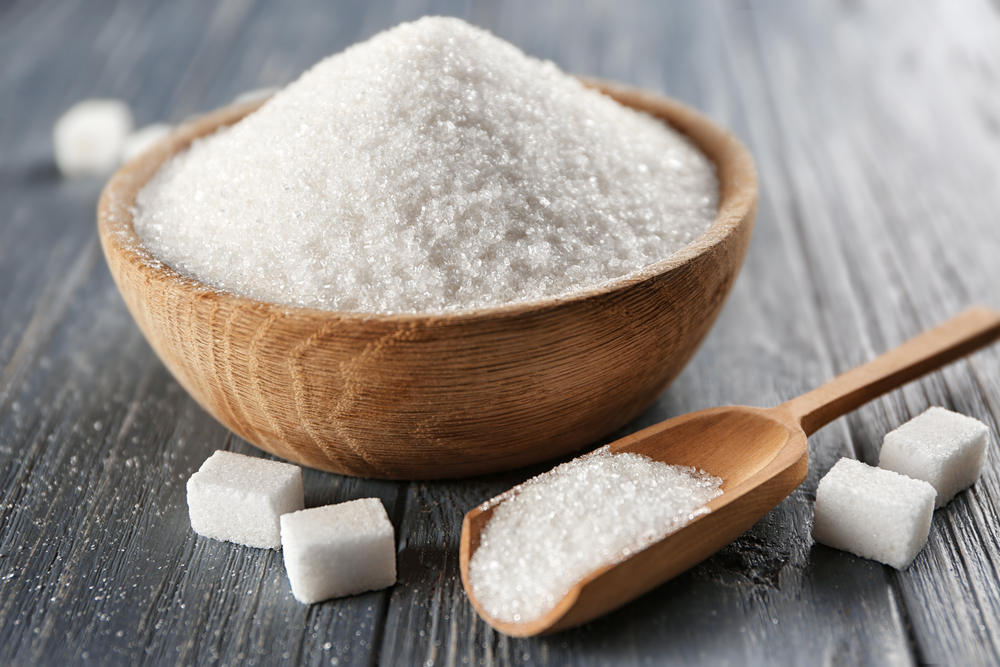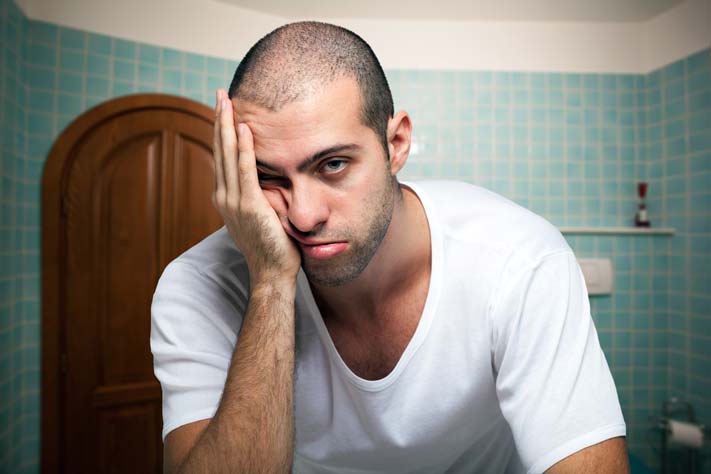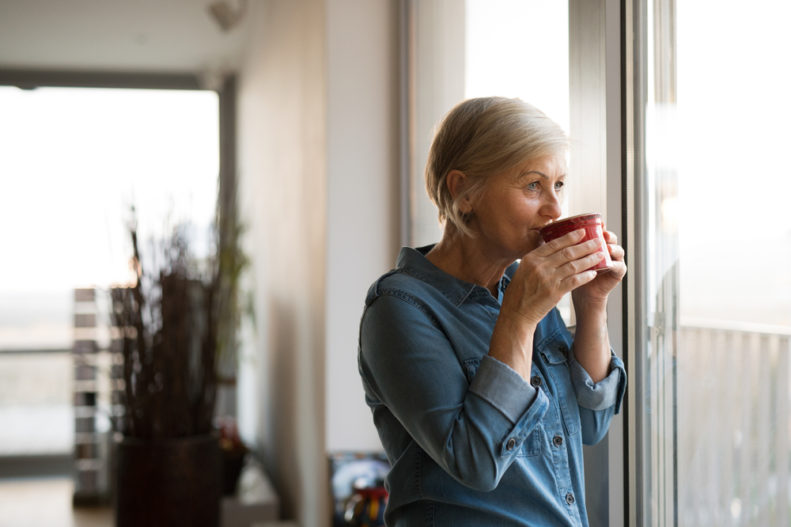Coffee can influence each of us differently, but it is best known for its ability to perk us up when we wake up in the morning. Despite coffee’s popularity for stimulating us, some may feel tired after sipping a cup or two. Below, I will explain why this happens and how coffee might affect us on a cellular level.
How Does Caffeine Affect Sleep?
Caffeine is a naturally occurring stimulant that changes the function of our nervous system and promotes wakefulness. It does this by blocking receptors located throughout our bodies (specifically in the brain). These receptors generally receive a neurochemical called adenosine which attaches to them. Adenosine increases in our bloodstream and passes through these receptors as the day progresses, which signals us to become sleepy later in the day. However, when these receptors are blocked by caffeine (which looks very similar to adenosine), the signal doesn’t get through, and we remain alert.
Studies show that ingesting caffeine can affect our sleep in multiple ways, such as:
- Delaying onset of sleep
- Reducing total sleep time
- Reducing sleep efficiency
- Reducing sleep stages
When we drink a beverage that contains caffeine, its effects are rapid, hitting most of us within 30-60 minutes. These effects typically last 5 hours, so that cappuccino you had at 6 pm could still keep you awake at 11 pm.
Why Does Coffee Make Me Sleepy?
Coffee affects us differently, depending on our age, metabolism, genetics, and daily habits. There are numerous reasons why coffee may make you feel tired.
Too Much Sugar in Your Coffee
Some studies show that caffeine can raise your blood glucose level and reduce insulin sensitivity, making you more tired in the short term. And if you happen to add sugar to your coffee, this can be a double whammy because the added sugar can spike your blood sugar and cause you to wake up during the night. Then, the next day you’re likely to feel sluggish and exhausted.

Your Coffee Is Spoiled
The mold that grows on coffee beans can produce mycotoxins, specifically Ochratoxin A (OTA), which is linked to liver and kidney problems. This exposure, combined with subsequent health issues, could create lethargy, sleepiness, and more severe symptoms.
Caffeine Tolerance
Like other substances, such as opioids and alcohol, you can build up a tolerance to caffeine if you drink it regularly. As your system becomes more accustomed to it, you will need more of it to feel its effects. The amount of time or quantity required to increase tolerance can vary depending on your size, genetics, and lifestyle factors.
Adenosine Receptors
Studies show that as you increase your daily intake of caffeine, your body may make additional receptors so that adenosine can continue to bind to them. Hence, as the caffeine binds to some receptors, adenosine will continue to attach to these extra receptors and do its job of making you sleepy.
Sleep Deprivation
If you are reaching for cups of coffee because you do not get enough sleep regularly, you may feel more awake in the short term, but this only exacerbates your exhaustion in the long run.
Dehydration
Coffee is a diuretic that can cause you to urinate often, which can make you feel tired, lethargic, and light-headed. Replenishing your fluids properly with water is important so that coffee’s diuretic effects are mitigated.
Stress
Coffee can increase your breathing rate, raise your blood pressure, generate a faster heartbeat, and make you sweat. When you drink coffee and you are under stress, you can amplify these feelings.

Additionally, the stress hormone cortisol normally rises in the morning shortly after you wake. When you drink coffee upon waking, this adds another signal to the body to increase cortisol production, which, when stressed, can create symptoms of tiredness and burnout.
Genetics
Our genes have been shown to influence how we metabolize coffee. Some people may feel more of caffeine’s negative effects, which can exacerbate symptoms of anxiety or insomnia.
Can Caffeine Help You Sleep?
Caffeine is not great when you require a restful, solid night of sleep. However, if you’re inclined to take a 20-30 minute nap during the day, caffeine intake can help you feel less groggy when you wake up – as long as you time it right.
How to Wean Off Caffeine
When getting off caffeine, it’s important to go slow. Reduce your caffeine intake by ½ each day for a week. This approach is a gentle way to ensure you won’t have those terrible side effects associated with caffeine withdrawal, such as fatigue, headache, or muscle pain.

FAQs
For more info, check out our FAQ section below.
Can you sleep off caffeine?
While you may be able to fall asleep shortly after drinking coffee, you will most likely wake up 30-45 minutes later. Forty-five minutes post-ingestion, caffeine is 99% absorbed, and its effects generally last for five hours.
Is it normal for caffeine to make you sleepy?
Caffeine usually counteracts fatigue; however, you may get tired after consuming caffeine because of dehydration, increased tolerance to caffeine, or blood sugar dysregulation.
Why do caffeine pills make me sleepy?
Caffeine pills might make you feel sleepy because you have developed a tolerance to them. It can be easy to get into a destructive cycle with caffeine pills by taking them to stay awake, and then when it’s time to fall asleep, you have trouble. This type of sleep dysregulation can make you more tired in the long run, so the effectiveness of the caffeine pills may not be as strong when you try them, or you may need more pills to feel as awake as you might typically.
Can caffeine addictions make you sleepy?
Yes, sometimes, caffeine addictions can make people feel sleepy. If you consume caffeine regularly, your body begins to build a tolerance to it, and you will need more caffeine to feel perky. Subsequently, your body may start to produce additional adenosine receptors, which can continue to make you feel sleepy.
